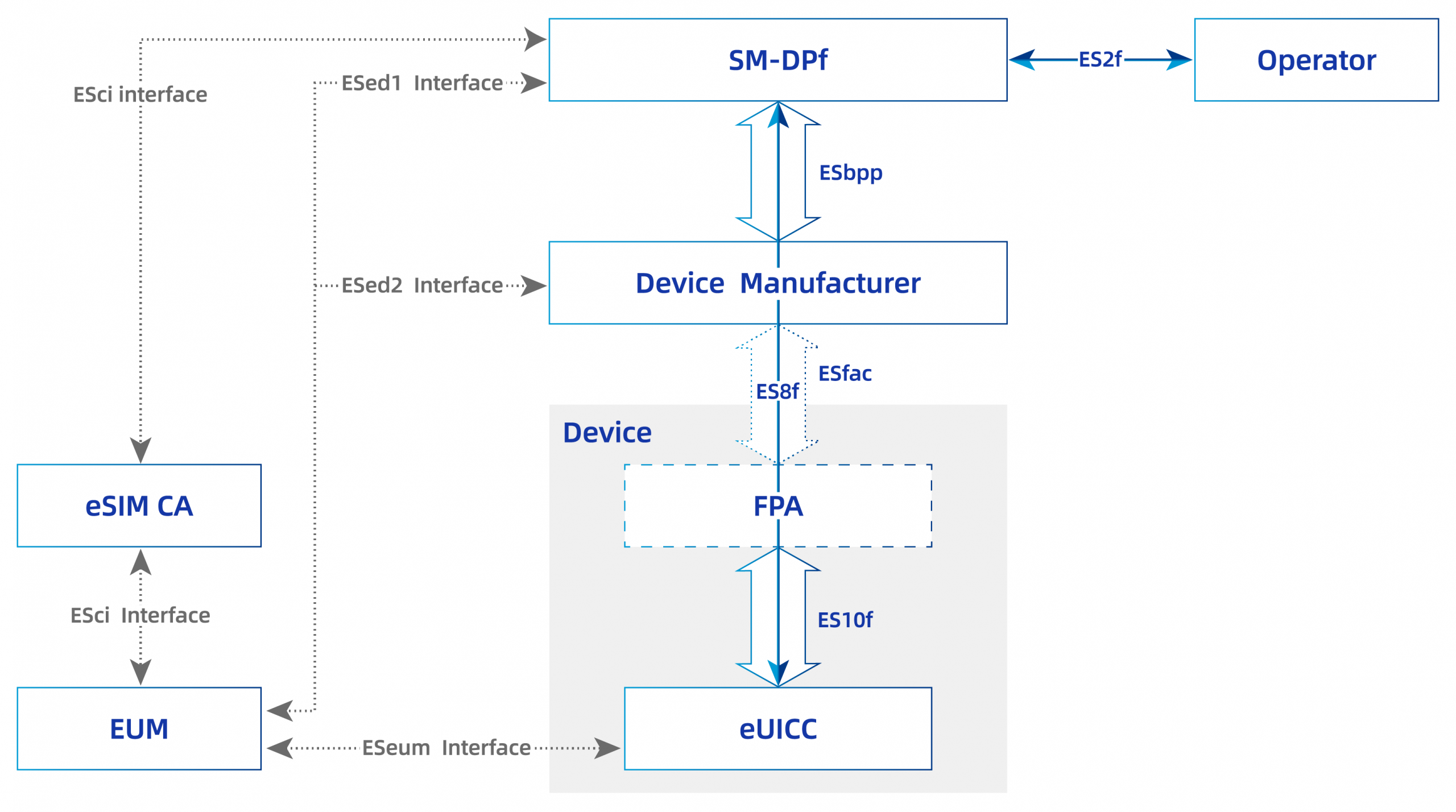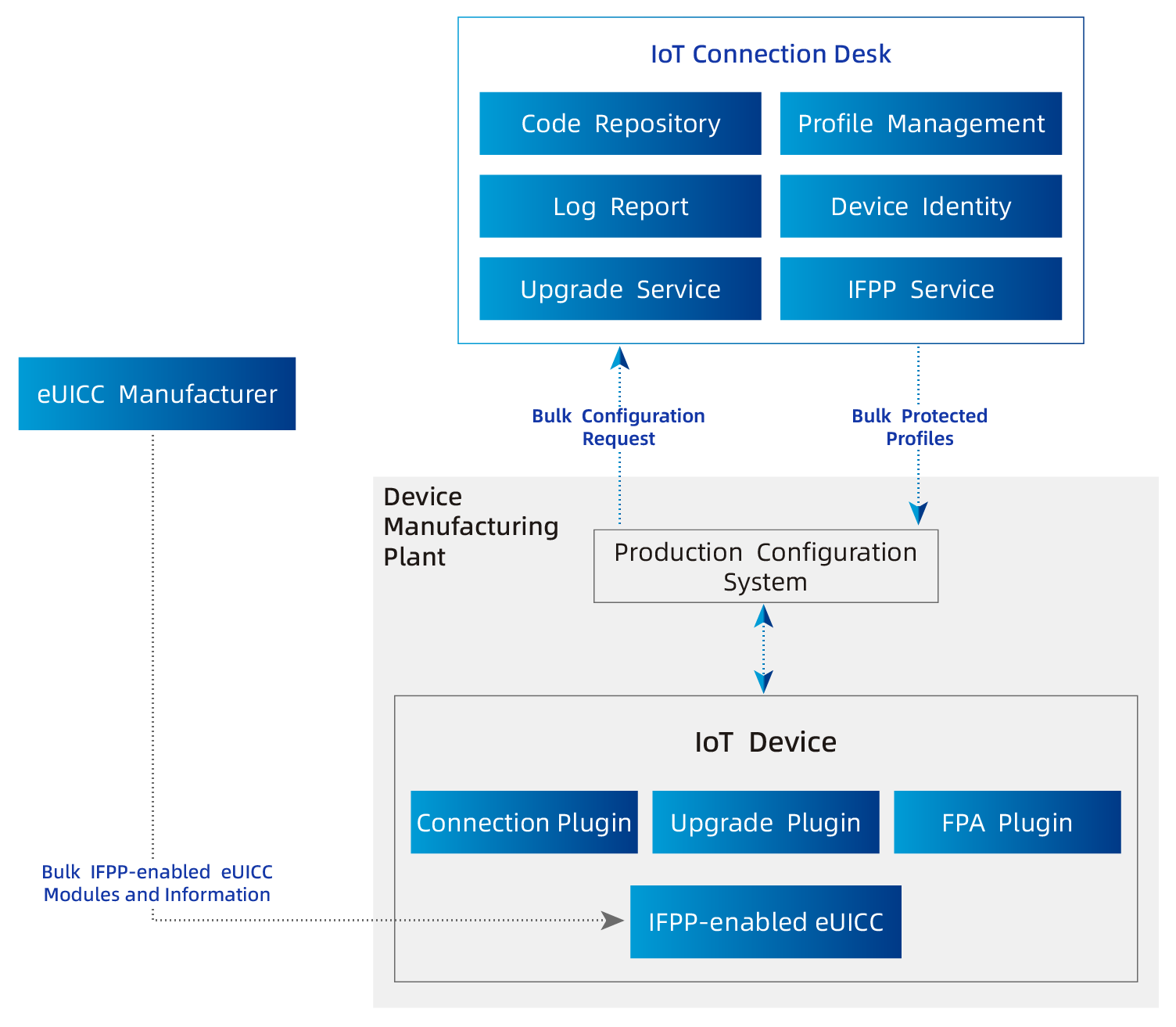In February 2025, the GSMA (Global System for Mobile Communications Association) released the SGP.41 eSIM IFPP Architecture and Requirements v1.0 specification, marking a significant expansion of eSIM technology’s application scenarios. IFPP (In-Factory Profile Provisioning) focuses on the device manufacturing process, enabling the secure pre-loading of operator Profiles into devices before they leave the factory, based on their intended deployment locations or functional requirements.
Compared with traditional eSIM technology, IFPP technology defined in SGP.41 offers the following key advantages:
Simplified Processes, Enhanced Flexibility
• Direct Profile pre-loading on the production line significantly simplifies SIM module inventory management.
• Enables single SKU (Stock Keeping Unit) management, thereby optimizing production, inventory, and logistics processes.
• Flexible Profile configuration based on market demand improves supply chain responsiveness.
Faster Deployment, Lower Costs
• Devices are “plug-and-play”, automatically connecting upon first boot and streamlining activation.
• Reduces the need for on-site technical support, cutting deployment costs.
• Eliminates energy consumption during on-site provisioning, extends device lifespan, and lowers operational costs.
Enhanced Security & Competitiveness
• Utilizes the high-security mechanisms of the GSMA eSIM ecosystem.
• Automated on-the-production-line loading minimizes human errors and enhances reliability.
• “Out-of-the-box connectivity” improves customer satisfaction.
IFPP technology can be widely applied in consumer electronics, automotive, utilities, industrial IoT, and other fields, making device connectivity smarter, more efficient, and cost-effective.
IFPP reuses the architecture and security frameworks from existing eSIM specifications (SGP.21, SGP.31), minimizing the impact on existing systems. Its architecture is as follows:

Key Components:
• SM-DPf (Subscription Manager Data Preparation factory): Generates and synchronizes Profiles offline.
• FPA (Factory Profile Assistant): Securely loads protected Profiles into eUICCs.
Critical Interfaces:
• ES2f: Interface for orders between operators and the SM-DPf.
• ESbpp: Secure channel for the SM-DPf to transmit protected Profiles to device manufacturers.
• ES10f: Interface for downloading Profiles between the FPA and eUICC.
• ES8f: Secure channel between the SM-DPf and eUICC.
Since the SGP.41 specification focuses on architecture and requirements, the corresponding technical details specification (SGP.42) is still under development. Therefore, the industry must remain adaptable. Watchdata offers its own tailored solution for IFPP scenarios.
As a professional data security service provider, Watchdata delivers a comprehensive eSIM solution certified under GSMA SAS-UP and SAS-SM. Its IoT Connection Platform offers a one-stop “Chip + eSIM Management + Connectivity Services” solution for IoT and consumer electronics, featuring:
• Compliance with GSMA SGP.22 and SGP.32, enabling “post-deployment” global connectivity management.
• Through the IFPP service components and IFPP-enabled eUICC modules, it provides “in-manufacturing” connectivity configuration capabilities.
The diagram below highlights Watchdata’s contributions in blue:

IFPP technology is reshaping device connectivity by enhancing production efficiency, reducing supply chain and operational costs, and delivering superior user experiences. As standardization progresses, IFPP is poised to become a core technology for IoT connectivity. Watchdata will continue to innovate in the eSIM space, actively participating in ecosystem development and collaborating with industry partners to explore new applications—delivering smarter and more seamless connectivity for users worldwide.


 English
English Français
Français Español
Español Português
Português 简体中文
简体中文